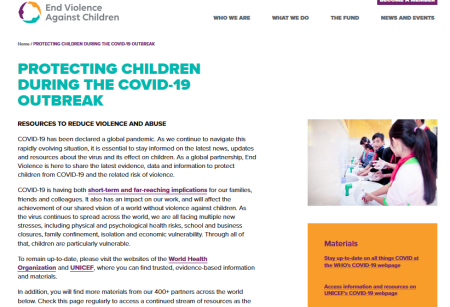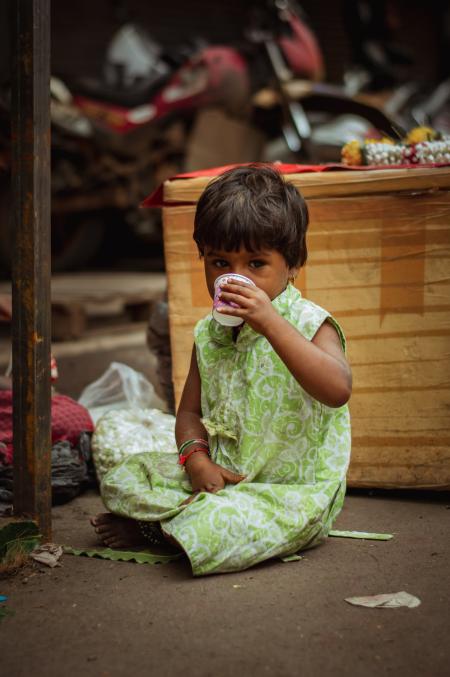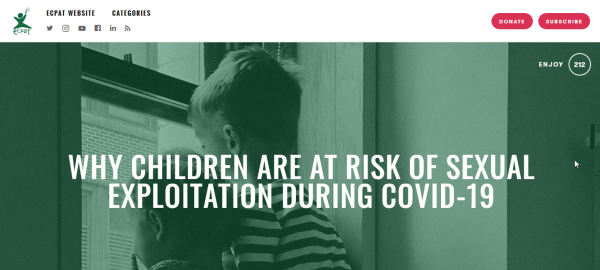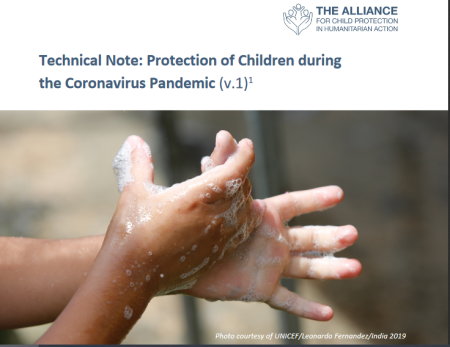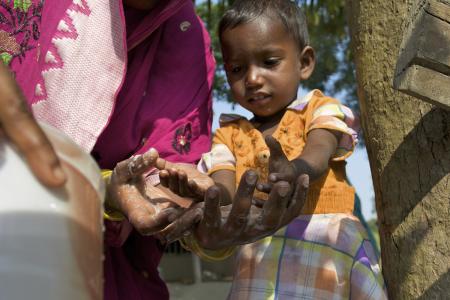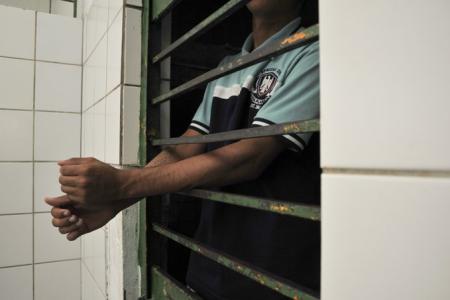
At the end of January 2020, the World Health Organization declared the Coronavirus outbreak a Public Health emergency of International Concern. Four months later, as governments across the world attempt to get things back to normal, adopt measures to relax their total or partial lockdowns and re-open businesses and schools , the COVID-19 pandemic is still hitting many communities hard. Whilst scientists, researchers and public health experts are continuously trying to understand COVID-19 and how best to respond to it, most countries are still registering new cases and deaths on a daily basis.
Destination Unknown members have highlighted how, as a result of lockdowns and other confinement measures to contain the spread of the virus, children and young people, including refugee and displaced children and youth, have been at heightened risk of abuse. Some of the concerns reported have included a limited access to food when families have lost their income, an increased risk of abuse in the home, limited access to regular services to meet the children’s needs, and in some contexts, challenging living conditions. In response, since the start of the pandemic, Destination Unknown members have called on governments to consider the specific vulnerabilities of children and youth, including migrant and refugee children, in their responses to COVID-19.
Under international human rights law, all Children have the right to “the enjoyment of the highest attainable standard of health” and governments have a responsibility to ensure all children have access to health services, regardless of their migratory status. In the current pandemic context, governments should make every effort to ensure that children on the move are included in their responses to COVID-19, including as they support communities in coming out of containment measures.
Destination Unknown members have put in place emergency projects and initiatives to support the most vulnerable children, including unaccompanied and separated children, as well as children who are moving with their families.
In many countries, the pandemic has forced many displaced children and their families to return home. This has been the case for example in India. After a first case of COVID-19 reported in the country at the end of January, the total number of confirmed cases then rapidly increased to just over 4,400 by the start of April. As a result, the Government of India declared a lockdown to prevent the spread of COVID-19. The lockdown negatively impacted people working in the informal sector, micro and small enterprises, agricultural land, and on the migrant labour market. People were left with no income in the absence of transportation and access to markets. Most migrant workers found themselves out of work as businesses and establishments closed down and with no food, savings, or shelter in large cities, many became desperate to reach their home villages. It is in this context that youth groups stepped up to support their communities and protect children on the move. They raised awareness about the risks of COVID-19 amongst their communities, using the slogan “Stay at Home” and reached people in different communities through WhatsApp video messages. They shared information with their peers on preventive measures and social distancing. In India, like in many other countries, Destination Unknown members and partners voiced their concerns over the higher risk of abuse for children due to lockdowns or other containment measures limiting movement. In response, Youth groups in India developed their own initiatives to protect children from violence, with the support of Destination Unknown members.
In Nepal, the pandemic has highlighted the need to strengthen child protection expertise amongst local authorities and health professionals. Destination Unknown members supported local communities with online awareness-raising activities, and provided technical support to health professionals on protecting children on the move from risks associated with COVID-19. Our members have also called on the government to ensure that all the necessary measures are put in place to protect all children from COVID-19 and to minimise the risks they face as a result of measures taken to manage the pandemic.
In Zambia and Zimbabwe, Destination Unknown partners Childline and Caritas have provided a lifeline for children facing a heightened risk of abuse, including children living in refugee camps. There has been clear evidence in these countries and globally that the COVID-19 pandemic and the measures associated to its response have increased the vulnerability of children to all forms of abuse. In addition to an increased risk of abuse, there are concerns that cases of abuse may not be reported, as children have limited access to child protection actors. In both countries, Destination Unknown partners have conducted online training of staff on the Prevention of Sexual Exploitation and Abuse; raised awareness about the prevention of child abuse through their helpline and social media; and relied on community structures to share information on the support available to children at risk in their communities, while observing the national COVID-19 prevention guidelines (including social distancing).
As many countries start to ease restrictions, Destination Unknown calls on governments to identify and address the needs of children and young people on the move including through supporting their meaningful participation in implementing the response.

You might like..



